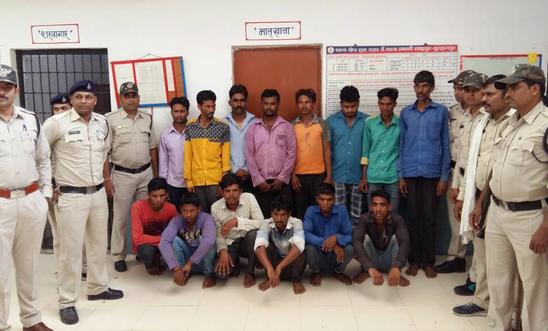By Muhammad Luqman
The arrests of at least 19 people for celebrating the Pakistan cricket team’s victory over India in the final of a major tournament is another worrying sign of the erosion of freedom of expression in India, says Amnesty International .
On 19 June, the police in Central Indian state of Madhya Pradesh arrested 15 people in Burhanpur district for allegedly committing ‘sedition’ by raising ‘pro-Pakistan’ and ‘anti-India’ slogans after Pakistan beat India in the finals of the International Cricket Council Champions Trophy held in London. On the same day, the Karnataka police arrested four people in Kodagu district for allegedly celebrating Pakistan’s victory.
They have been accused of spreading ‘communal disharmony’. The offence of sedition is punishable with life imprisonment.
Asmita Basu, Programmes Director of Amnesty International India, said: “These arrests are patently absurd, and the 19 men should be released immediately.
“Even if the arrested men had supported Pakistan, as the police claim, that is not a crime. Supporting a sporting team is a matter of individual choice, and arresting someone for cheering a rival team clearly violates their right to freedom of expression.”
The First Information Report registered by the Madhya Pradesh police states: “[The accused] chanted “Pakistan Zindabad” in support of the Pakistan cricket team…They celebrated Pakistan’s win by bursting crackers and distributing sweets…Their actions suggested that they were trying to conspire against the Indian government by supporting Pakistan in the cricket match…Because of them, there is an atmosphere of unrest in the village.”
The Karnataka police, according to media reports, said the four men arrested in the state set off fire crackers and raised slogans supporting the Pakistan cricket team.
“These cases show just why the sedition law should be immediately repealed. This law is excessively broad and vague and makes it easy to silence people who are legitimately exercising their right to freedom of expression,” says Asmita Basu .
Section 124A of the Indian Penal Code defines sedition as any act or attempt “to bring into hatred or contempt, or…excite disaffection towards the government.” The Supreme Court of India has ruled on multiple occasions that speech would amount to sedition only if it involved incitement to violence or public disorder. In a 2015 case, the Court ruled: “Mere discussion or even advocacy of a particular cause howsoever unpopular is at the heart of [the right to freedom of expression].”















